- Home
- Brian Garfield
Marchand Woman
Marchand Woman Read online
The Marchand Woman
Brian Garfield writing as John Ives
A MysteriousPress.com
Open Road Integrated Media ebook
For Shan:
You must be!
Where there is neither love nor hatred in the
game, woman’s play is mediocre.…
In revenge and in love woman is more
barbarous than man.
—Nietzsche, Beyond Good and Evil
Revenge is a kind of wild justice.
—Bacon, Of Revenge
Woman was God’s second mistake.
—Nietzsche, The Antichrist
A woman always has her revenge ready.
—Molière, The Misanthrope
Sweet is revenge—especially to women.
—Byron, Don Juan
PART
ONE
Chapter 1
When the telephone rang she made a face. She wound a towel around her wet hair and tucked the edges in and picked it up on the fifth ring.
It was Howard, his voice very low—like a phonograph running at the wrong speed. “I’m glad I caught you at home. I’ll be there in twenty minutes. Wait for me. Has anybody called you?”
“At this hour of the morning?”
“Leave it off the hook till I get there. I don’t want it coming from someone else.”
“Must you be melodramatic?”
“Yes. Wait for me.”
By the time the doorbell rang she had fitted into skirt and blouse and sandals; she was putting her face on. She had a look through the Judas glass and saw him lighting a cigarette on the doorstep.
He seemed to have faded a bit with age, like a photostatic copy of himself. She was surprised to realize how long it had been since she had seen him face-to-face; it had all been letters and the occasional telephone vitriol. The things they had said to each other—
She opened the door to him; he neither spoke nor entered but simply looked at her, his eyes swollen. It unnerved her. She cried with completely false affection, “Howard, darling, why is it I never see you any more?” But she kept her face blank to put the lie to it.
Howard held up a forestalling finger. She let him in; he turned half around, waiting for her to close the door, holding the cigarette in the manner of an actor preparing to turn toward the audience and deliver a curtain line. But still he didn’t speak.
“Darling, you look simply marvelous.” An awkward lie. “I love the distinguished way your hair’s graying at the sides. It would do credit to an investment banker.”
He seemed caught in dumfounded paralysis. She tried again, needling him with her saucy screw-you grin. “How’s your ass anyway?”
“Carole, please.”
“Well then.” She pointed him with vague weariness toward a chair.
He went to it like an old man, wincing as he sat down. She watched him search the coffee table with childlike baffled concentration. Exasperated—“Good grief!”—she plunged into the kitchen, found him an ashtray in a drawer, dropped it on the table before him so that it rattled. Howard twisted the half-consumed cigarette into it, grinding it out savagely. He looked around the room like a fitful airline passenger anxious to memorize the locations of the fastest exits.
“It’s Robert,” he said.
“Of course it’s Robert. I can’t imagine anything else that would bring you here.”
“Sit down.”
Perversely she drew herself up. “He’s dead.”
“No. He’s not dead as far as I know. Sit down, Carole.”
She was furious. “What’s happened? You’ve done your level best to provoke cardiac arrest and there’s nothing wrong with him? You’ve no right—”
“I didn’t say there was nothing wrong with him. Well actually as far as I know there’s nothing physically wrong with him.” He plucked feebly at his pocket. “I happened to be here.” Found another cigarette. “In Los Angeles I mean. Meetings with the Japanese.” He had to use both hands to light it. “The office reached me at my hotel an hour ago.” He inhaled, choked, coughed, recovered. “It’s an unhappy coincidence, my being here just now. I’d rather have been in Washington—I think this would have been easier long-distance.”
She realized he was groping not for a way to tell her but for a way to avoid telling her. He kept glancing at the telephone as if he expected it to reprieve him. It was so masochistically like him: Never face quick pain if it was possible to choose the long agony of not facing it.
She controlled herself. “What’s happened to him?”
He gave her a reproachful look. It slid away; he brooded at the cigarette and his mouth worked ruefully.
She said, “There is, I have to assume, a crisis involving our son—yet you insist on keeping it back so that I can watch you squirm in your own crisis. You’re as demanding of attention as a child banging its spoon on the table. You’re a bastard, Howard, you really are.”
His mouth lifted, one side of it, in a sour smile. “There’s such an irony in it,” he said. “Hijacked. Terrorists. He’s been kidnaped.”
He sucked at the cigarette and smoke poured from his mouth with each word: “It’s not as if he isn’t used to it, is it. I mean at least he knows the ropes, it’s not the first time he’s been kidnaped.”
“Kidnaped.” She repeated the word stupidly.
His hands fluttered and he dropped the cigarette and went scrounging for it in the carpet. When he found it he said, “Apparently it was some sort of grisly accident. He wasn’t meant to be one of the victims—he just happened to be there, he got swept up in it. No rhyme or reason.”
“He’s been kidnaped by terrorists?”
She watched him stand up; he seemed to loom when he approached her—she wasn’t wearing heels. She saw what he was up to in time; she moved away, she didn’t want his clumsy embrace. She said, “I don’t want comforting, Howard. I want facts. Tell me the punch line.”
“There’s no punch line. They took him yesterday afternoon. Nobody knows anything. Nobody knows where he is or whether he’s dead or alive. One assumes he’s still alive—dead hostages aren’t worth much.”
“Hostage for what?”
“It’s still not clear.”
She wandered around the room. “Shall I make coffee?”
“A drink,” he said, “a drink would be better.”
In the kitchen she drew herself together, helped by the mechanical minutiae: Open the cabinet, take down two glasses, find the Dewar’s, pour, return.
Half aware of her movements she sank into the recliner and its footboard flipped up unbidden under her calves. Howard said, “This must be, what, the third time he’s been kidnaped?” There was waspish accusation in his tone.
“Let’s not get started on that.” She tasted the drink but it wasn’t what she wanted; she put it aside. “Mexico?”
“Mexico? Yes, in Mexico. Well at least they were kidnaped in Mexico. God knows where they are now. They could be anywhere. State has no idea. It’s near the coast and there’s flat country all around where they might have landed a plane. The vehicles were found abandoned ten kilometers from where it happened—that doesn’t mean anything, of course they’d switch vehicles. The authorities are looking for witnesses, of course, but—”
She watched him inhale deeply. He threw his head back and closed his eyes. “I’ll try it from the top. I’m sorry. It was Harrison Gordon they were after. He’s the Ambassador. The kidnapers must have been fairly well organized—at least they seem to have had advance information about his itinerary. He was on a fact-finding tour of the provinces. His party was ambushed at a village junction near the coast of Mexico above the peninsula. The kidnapers took Gordon and everybody in his party, hauled them off in buses. Nobody was
killed. Apparently one security guard took a rap on the head. A reporter named Ortega happened to be an eyewitness—he’s a stringer for the L.A. Times.”
“What was Robert doing there?”
“According to Ortega he’d hitched a ride down there to plead for medical assistance for the Yaquis. Robert was talking to Ambassador Gordon when it happened. So he was swept up along with the rest of the party.”
“Why hasn’t it been in the papers?”
“It’ll be in the afternoon editions. Washington and Mexico City wanted to keep it quiet but of course they couldn’t keep Ortega muzzled for very long. They were waiting for the demands.”
“Demands?”
“Ransom. There are always demands, aren’t there? I mean you don’t kidnap a United States Ambassador for a lark.”
She said, “It’s a mistake, isn’t it. A ghastly mistake.”
“We’ll know more in time. I asked Paine to call me here this morning if he learns anything. I hope you don’t mind—”
“Who are they? Don’t they even know who they are?”
“The terrorists? Nobody knows yet.”
She said, “What do we do? Just wait? I don’t know if I can bear that.”
“I don’t know what else to do.” His hands wrenched at each other. “It’s not much good saying I’m sorry. But I hope you know how much I’m hating myself right now. If we hadn’t treated him like a Volleyball between us he might not have run away to Mexico with his Peace Corps nonsense and this might—”
“Don’t be ridiculous. A thing like this is as arbitrary as a tornado. I don’t want to indulge you in a mea culpa right now—I haven’t the strength. Do you want breakfast?”
“No. But go ahead if you’re hungry.”
“I’m not.”
She watched him light his third cigarette. She said, “Shall we just sit here and wait for the phone to ring, then?”
“I don’t know.” She saw the tremor in the hand with which he lifted his glass. He said, “I don’t know what to do or what to say. I’m supposed to be in a meeting at eleven. The Japanese trade delegation.”
“Then go to it.”
“And leave you here alone?”
“I’m going to the studio,” she said, deciding it even as she spoke. “We’re still editing the picture.”
“I wonder if it’s possible to work. To keep one’s mind on anything.”
“I’m not strong enough not to,” she said. “I couldn’t possibly sit here and stare at the walls.”
“I suppose you’re right.”
She looked at her watch. “You’ve still got time to make your meeting.”
“Can I drop you at the studio?”
“No thanks. I may want my car with me.”
“I’m at the Hilton,” he said.
“All right. You can reach me at the studio.”
He made as if to stand, but didn’t. “Carole, this is awkward but let me ask you: Have you got a boy friend?”
“A boy friend? No. I have a few men friends.”
“Someone you can turn to, I mean.”
“Let me worry about it, Howard. Rest assured if I want a shoulder to cry on I won’t choose yours.”
“I didn’t mean it like that,” he said with almost laughable petulance. “But it’s just that if you need anything—”
“I know. I’m sorry, I didn’t mean to be intolerable. It’s kind of you to offer but I’ll be all right.”
He said vaguely, “I think I’ll ask Paine to fly out today and take my place in these meetings. I’ll go back to Washington tonight. I’d rather be there—maybe I can keep my finger on the pulse of things from there. Mexico’s not my desk, of course, but I know Mark Blaisedell fairly well. Maybe I can build a few fires. I’d hate to think we weren’t doing everything possible to save them.”
“Will you keep me informed?”
“Instantly I know anything.”
She didn’t believe him but there was no point arguing with him.
On the turns down Beverly Glen into the Valley she paid rigid attention to her driving; she was running on her nerve-ends and couldn’t take it for granted. She was in Burbank within twenty minutes, parking in the slot that had her name on it. When she emerged from the air-conditioned car the heat slapped her face and she hurried across the compound. A red light glowed above the door of one of the soundstage hangars.
She was thinking she’d treated Howard shabbily. But when she went inside the studio office block she thought defiantly that he deserved it. By the time she reached the elevator she had pushed him aside in her mind; she was thinking now of Robert, trying to picture his plight, imagining him talking with nervous energy to his fellow hostages. Robert would be analyzing it. Talking in that staccato fashion that was not quite a stammer, his shoulder jerking at random intervals, his mouth grimacing in rictus tics. Spouting facts he’d absorbed from news magazines about terrorist attitudes and hostage behavior—telling the others how to react, what face to present to the captors. She had no doubt the Ambassador was listening to Robert rather than the other way round. Robert was a font of facts if not wisdom, and incapable of passivity.
In the cutting room Mort Kyle stood about, furiously smoking a cigarette-sized cigar, wearing a trim denim outfit and a suntanned scowl; Edith was lapping .35-millimeter frames on the Movieola and talking cheerfully: “The most incredible hat. Anyhow I think it was a hat, because she had it on her head.”
Carole closed the door. In the half darkness Mort searched her face. “What’s wrong, darling?”
She told them. Mort and Edith were shocked. Mort stroked his neat beard and made sounds of sympathy; Edith mouthed some of the right things. Carole cut her off: “Look, dear, I need to work. Busy hands, you know, all that. Now where are we?” She had moved adroitly to evade Mort’s hands; now he put them in his pockets and scowled again. The scowl was his favored expression.
He picked up the extension. “Darling, this is Mort Kyle. We’re in Cutting-room Three. If there are any calls for Carole Marchand, patch them in here, will you?”
Carole said, “It could be for Lundquist.”
Mort relayed it into the phone: “The call may come in under her married name, Lundquist.”
Edith made room above the Movieola’s miniature screen. “We’re trying to shave some frames Off the ski-lift sequence. Right here—we could shorten the long-shot, cut faster to the close-up and tighten up around the dialogue.”
“I hate to lose that shot. Cap broke his ass setting up on the ice to get that angle. It’s a gorgeous composition.”
Mort was on the phone ordering coffee; he turned away from it, cupping the mouthpiece in his hand. “It’d do credit to Archie Stout and John Ford, darling, but we’re not selling a travelogue. We’ve still got to snip a lot of footage.”
Edith cocked a knowing eyebrow and Carole tried to smile to reassure the girl but she was having trouble dimpling up just now; she turned away before it became a snarl. When Mort hung up the phone she said, “Am I going to have to fight you over every foot of this picture?”
“You’re going to have to fight me over about sixty-five hundred frames, darling. That’s what it’s still got to lose.”
The Movieola rattled. Frames jinked across the screen; underlit by that flickering source, Mort’s narrow-bearded face had the Mephistophelean look of a silent movie villain’s.
“It’s my picture,” she said. “This time it’s mine. I wrote it and directed it—I won’t have it butchered by a clock.”
Mort’s eyes glimmered from the gloom. “You don’t have final cut, darling. Neither do I. I only produced it—the distributors make the decisions. They want a picture they can screen at seven o’clock and nine o’clock. Go over a hundred and five minutes and you’re screwing up their timetables. Look—the studio will cut it if we don’t. Isn’t it better that you and I do the dirty deed ourselves?”
The little cigar glowed briefly and arced to the floor; Mort’s heel crushed the life fro
m it. For a long time they stood in conflicting silences.
Mort gave her a soft smile. He wasn’t using his charm deliberately; the charm was there, that was all. “It’s a low-budget picture, darling. I can’t see the exhibs bending over to let us have the extra five minutes, can you?”
“If I were a man would you browbeat me this way?”
“Darling, I’d be far more ruthless with a man. Sam Gilfillan refuses to speak to me to this day because he insists I ruined Pride Goeth in the cutting room. Face it, Carole, if you were a man you wouldn’t have had a shot at directing this picture at all. They’re going out of their way to accommodate women and minorities right now. So let’s not have any sexist crap, shall we?”
“I’m sorry. It was a cheap shot. I’ve never done that before. It’s nerves.”
“I understand, darling. Sure. I also understand you came to work on purpose. You can go home if you want to, but if you stay here we’re going to cut this picture. That’s what we’re all here for. Now find me four and a half minutes to drop. You pick ’em, I’ll stand aside. But I want four and a half. Minimum. Fair enough?”
Mort left the cutting room; Carole settled down with Edith to feed stock through the sprockets. She had no real quarrel with her producer; these were the games that had to be played. She knew her craft. Felix’s Kingdom would have to sell two million tickets before break-even. She didn’t have to remind herself she was a movie director, not an auteur-artiste defined by the sophomoric Cahiers-du-Cinema fools.
It was her fourth picture. Two of the first three had made money; all three had won awards of one kind or another. What Mort had said was not true—she hadn’t got this job because of her sex; he’d only said it to goad her. Mort would say almost anything to provoke debate, it was his manner. What mattered in the end was that she knew he liked the picture. She liked it herself: Her object had been to make a movie that she would have bought a ticket to see if someone else had made it.
Felix’s Kingdom was an unabashed tearjerker. A man, two women. She’d wanted sentiment, romance: a six-handkerchief movie that would make her cry with heartbreak and cry again with relief and triumph, sappy and trite and wonderful. The critics would lambaste it but screw them. It made her cry.

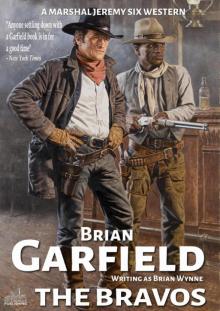 Marshal Jeremy Six #3
Marshal Jeremy Six #3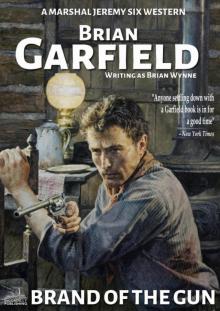 Marshal Jeremy Six #6
Marshal Jeremy Six #6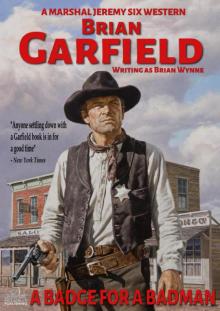 Marshal Jeremy Six #5
Marshal Jeremy Six #5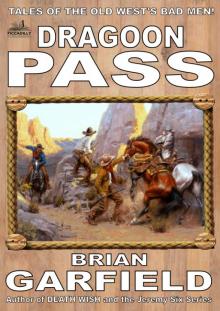 The Outlaws 2
The Outlaws 2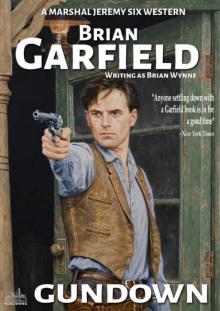 Marshal Jeremy Six #7
Marshal Jeremy Six #7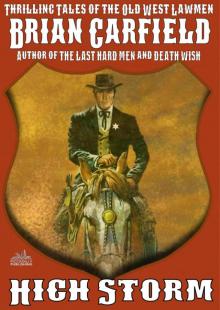 The Lawbringers 4
The Lawbringers 4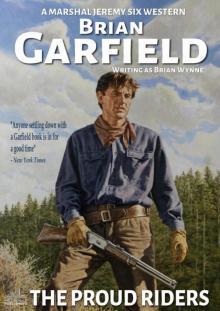 Marshal Jeremy Six #4 the Proud Riders
Marshal Jeremy Six #4 the Proud Riders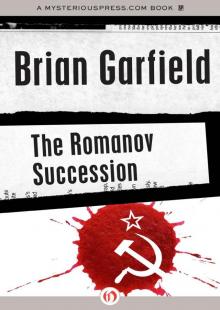 The Romanov succession
The Romanov succession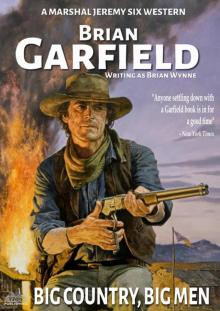 Marshal Jeremy Six #8
Marshal Jeremy Six #8 Sliphammer
Sliphammer Line of Succession
Line of Succession Deep Cover
Deep Cover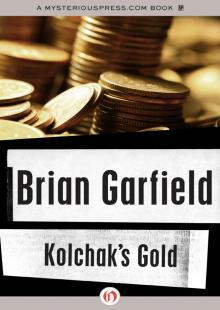 Kolchak's Gold
Kolchak's Gold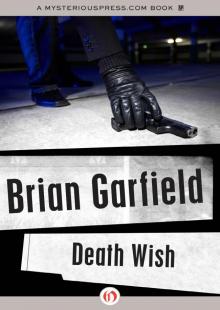 Death Wish
Death Wish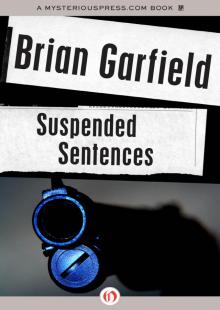 Suspended Sentences
Suspended Sentences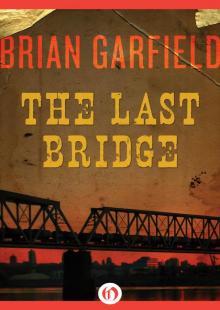 The Last Bridge
The Last Bridge Relentless
Relentless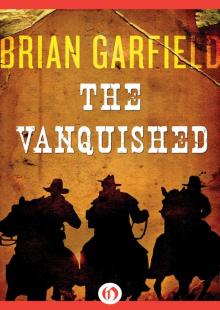 The Vanquished
The Vanquished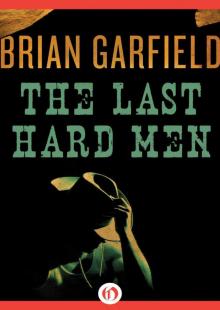 The Last Hard Men
The Last Hard Men Hit and The Marksman
Hit and The Marksman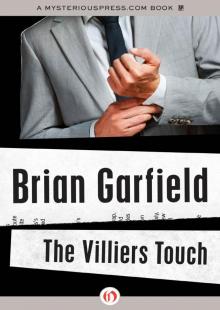 Villiers Touch
Villiers Touch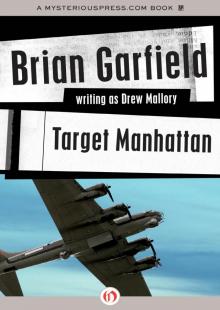 Target Manhattan
Target Manhattan Marchand Woman
Marchand Woman What of Terry Conniston?
What of Terry Conniston?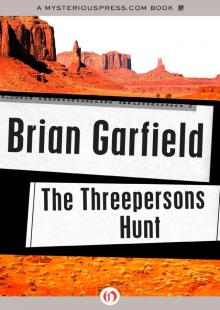 Threepersons Hunt
Threepersons Hunt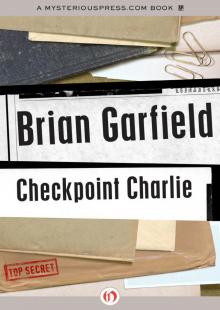 Checkpoint Charlie
Checkpoint Charlie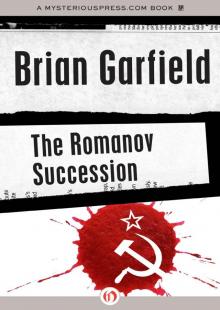 Romanov Succession
Romanov Succession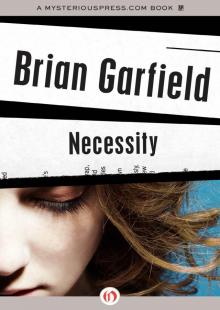 Necessity
Necessity Death Sentence
Death Sentence Fear in a Handful of Dust
Fear in a Handful of Dust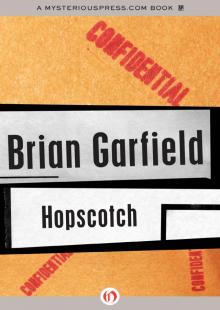 Hopscotch
Hopscotch